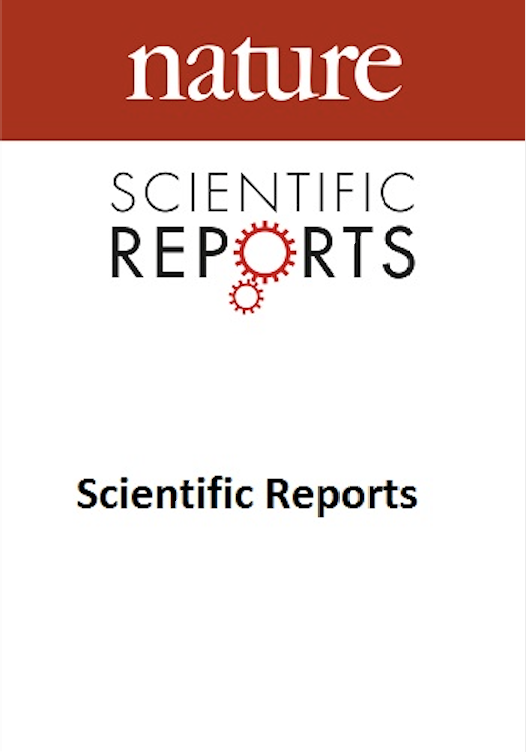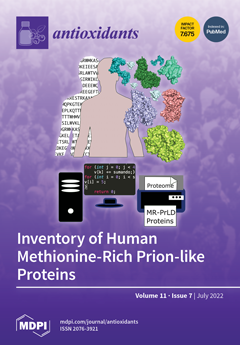Skeletal Muscle
How to submit an article:
- Registered users can submit any published journal article that has a unique DOI (Digital Object Identifier) name or link to Research Hub.
- For example, you can paste the full DOI link:
https://doi.org/10.1109/5.771073or just the DOI name:10.1109/5.771073into the field above and click submit. - The person who is first to submit a valid article to Research Hub will forever be credited for it, and every article submission earns you +6 Research Points.
Published research studies are articles that present the findings of original research that has undergone a peer-review process and has been made publicly available in scholarly journals, books or other media.

Skeletal muscles and gut microbiota-derived metabolites: novel modulators of adipocyte thermogenesis
2023 Oct 06 Frontiers in Endocrinology Tang Y, Wang YD, Wang YY, Liao ZZ, Xiao XH
The study concludes that metabolites from skeletal muscles and gut microbiota function as signaling molecules, interacting with membrane receptors or controlling intracellular enzyme activity, and have the potential to regulate adipocyte thermogenesis in obesity.
Review Article Skeletal Muscle Gut Microbiota
Anti-Obesity Effects and the Regulation of Energy Metabolism in Skeletal Muscle Tissues of Allii Fistulosi Bulbus Extract in High Fat Diet-Induced Obesity Mice
2022 Dec 31 Journal of Korean Medicine for Obesity Research Choi YY, Lee HS, Baik SY, Lim S, Jung HW, Kang SY, et al.
In summary, GHH treatment promoted glucose uptake in C2C12 myotubes. We suggest that these effects are associated with increased gene expression involved in mitochondrial biosynthesis and oxidative phosphorylation, such as Tfam and Ppargc1a, and increased expression of AMPK protein.
Animal Study Obesity
Abnormal whole-body energy metabolism in iron-deficient humans despite preserved skeletal muscle oxidative phosphorylation
2022 Jan 19 Scientific Reports Frise MC, Holdsworth DA, Johnson AW, Chung YJ, Curtis MK, Cox PJ, et al.
Experimental Study Clinical Study Skeletal Muscle Iron DeficiencyIron deficiency promotes a shift towards a more glycolytic metabolism, without detectable effect on mitochondrial bioenergetics, which can be corrected with iron supplements.

Impacts of Green Tea on Joint and Skeletal Muscle Health: Prospects of Translational Nutrition
2020 Oct 28 Antioxidants Luk HY, Appell C, Chyu MC, Chen CH, Wang CY, Yang RS, et al.
Review Article Sarcopenia Green Tea Catechin Green Tea ArthritisGreen tea catechins potentially contribute to maintaining joint and skeletal muscle health, mitigating symptoms of osteoarthritis and sarcopenia.

Apitherapy for Age-Related Skeletal Muscle Dysfunction (Sarcopenia): A Review on the Effects of Royal Jelly, Propolis, and Bee Pollen
2020 Sep 25 Foods Ali AM, Kunugi H
Bee products, rich in antioxidants and with versatile pharmacological activities, have shown varying positive effects on muscle mass, strength, and function in laboratory animals and limited human studies. Potential mechanisms include reducing inflammation and oxidative damage, promoting metabolic regulation, enhancing satellite stem cell responsiveness, improving muscular blood supply, inhibiting catabolic genes, and promoting peripheral neuronal regeneration.
Review Article Bee Pollen SarcopeniaResearch insights are moderated by the Research Hub team and offer an at-a-glance overview of interesting research findings.

2022 Scientific Reports
Iron deficiency promotes a shift towards a more glycolytic metabolism, without detectable effect on mitochondrial bioenergetics, which can be corrected with iron supplements.
Experimental Study Iron Deficiency
Abnormal whole-body energy metabolism in iron-deficient humans despite preserved skeletal muscle oxidative phosphorylation
Frise MC, Holdsworth DA, Johnson AW, Chung YJ, Curtis MK, Cox PJ, et al.

2020 Antioxidants
Green tea catechins potentially contribute to maintaining joint and skeletal muscle health, mitigating symptoms of osteoarthritis and sarcopenia.
Review Article Arthritis Green Tea Green Tea Catechin Sarcopenia
Impacts of Green Tea on Joint and Skeletal Muscle Health: Prospects of Translational Nutrition
Luk HY, Appell C, Chyu MC, Chen CH, Wang CY, Yang RS, et al.
Review Articles
Review articles summarise and critically evaluate the current state of research on a specific topic or field by synthesising multiple primary research studies.

Skeletal muscles and gut microbiota-derived metabolites: novel modulators of adipocyte thermogenesis
2023 Oct 06 Frontiers in Endocrinology Tang Y, Wang YD, Wang YY, Liao ZZ, Xiao XH
The study concludes that metabolites from skeletal muscles and gut microbiota function as signaling molecules, interacting with membrane receptors or controlling intracellular enzyme activity, and have the potential to regulate adipocyte thermogenesis in obesity.
Review Article Skeletal Muscle Gut Microbiota
Impacts of Green Tea on Joint and Skeletal Muscle Health: Prospects of Translational Nutrition
2020 Oct 28 Antioxidants Luk HY, Appell C, Chyu MC, Chen CH, Wang CY, Yang RS, et al.
Review Article Sarcopenia Green Tea Catechin Green Tea ArthritisGreen tea catechins potentially contribute to maintaining joint and skeletal muscle health, mitigating symptoms of osteoarthritis and sarcopenia.

Apitherapy for Age-Related Skeletal Muscle Dysfunction (Sarcopenia): A Review on the Effects of Royal Jelly, Propolis, and Bee Pollen
2020 Sep 25 Foods Ali AM, Kunugi H
Bee products, rich in antioxidants and with versatile pharmacological activities, have shown varying positive effects on muscle mass, strength, and function in laboratory animals and limited human studies. Potential mechanisms include reducing inflammation and oxidative damage, promoting metabolic regulation, enhancing satellite stem cell responsiveness, improving muscular blood supply, inhibiting catabolic genes, and promoting peripheral neuronal regeneration.
Review Article Bee Pollen Sarcopenia
Glutamine: Metabolism and Immune Function, Supplementation and Clinical Translation
2018 Oct 23 Nutrients Cruzat V, Macedo Rogero M, Noel Keane K, Curi R, Newsholme P
Review Article Rice Congee GlutamineClinical Trials
Clinical trials are research studies that involve people and are conducted to evaluate the safety and efficacy of new treatments or interventions, such as drugs, medical devices, or behavioural therapies.
Study Protocols
Published study protocols are detailed plans that outline the objectives, methodology, statistical analyses, and organisation of a research study that have been made publicly available for others to review and use as a reference.
Presentation Slides

Experimental Study
Iron deficiency promotes a shift towards a more glycolytic metabolism, without detectable effect on mitochondrial bioenergetics, which can be corrected with iron supplements.
Frise MC, Holdsworth DA, Johnson AW, Chung YJ, Curtis MK, Cox PJ, Clarke K, Tyler DJ, Roberts DJ, Ratcliffe PJ, Dorrington KL, Robbins PA

Review Article
Green tea catechins potentially contribute to maintaining joint and skeletal muscle health, mitigating symptoms of osteoarthritis and sarcopenia.
Luk HY, Appell C, Chyu MC, Chen CH, Wang CY, Yang RS, Shen CL
Executive Summary
Write an executive summary in the form of a blog article on the topic of "Research into Chinese medicine treatment for Skeletal Muscle" summarising the research below and using language that can be easily understood by patients and avoiding medical jargon using a professional and caring tone of voice.
Write an executive summary in the form of a blog article on the topic of "Researched Chinese medicine treatments for Skeletal Muscle" summarising the research below in an objective and easy to understand way, and using language that can be easily understood by patients. Group the article into Chinese medicine treatments first, followed by nutrition and other treatments. Avoid using medical jargon and use a professional and caring tone of voice.
Write me a concise but easy to understand executive summary on the topic of "Chinese medicine treatments for Skeletal Muscle" based on the following research that I will give you. Your summary should be 2 paragraphs long in Australian English spelling and include references to the studies.
A Experimental Study published in 2022 in the journal Scientific Reports found that Iron deficiency promotes a shift towards a more glycolytic metabolism, without detectable effect on mitochondrial bioenergetics, which can be corrected with iron supplements. The methodology of this prospective, case-control, clinical physiology study involved two series of testing. Thirteen iron-deficient individuals and thirteen iron-replete control participants were chosen for the study, and they underwent P-magnetic resonance spectroscopy of their exercising calf muscles to investigate the differences in oxidative phosphorylation. This testing was followed by a whole-body cardiopulmonary exercise test. After these assessments, individuals were given an intravenous infusion, which was randomised to be either iron or saline. The results showed no significant influence of either baseline iron levels or the intravenous iron infusion on the high-energy phosphate metabolism. In the case of submaximal cardiopulmonary exercise, the rate of decline in blood lactate concentration was slower for the iron deficient group, which shows signs of abnormal energy metabolism on a whole-body level. Remarkably, this anomaly was corrected after an intravenous iron infusion. Furthermore, the intravenous iron also increased the lactate threshold during maximal cardiopulmonary exercise by around 10%, no matter what the baseline iron status of the individual was.
A Review Article published in 2020 in the journal Antioxidants found that Green tea catechins potentially contribute to maintaining joint and skeletal muscle health, mitigating symptoms of osteoarthritis and sarcopenia. The research begins by providing an understanding of osteoarthritis, a degenerative inflammatory disorder of articular cartilage, and sarcopenia, a condition characterized by loss of muscle mass and strength. It explores their prevalence, causes such as excessive inflammation and oxidative stress, mitochondrial dysfunction, and diminished autophagy. It then delves into the role of green tea catechins in joint health, including their influence on inflammatory signaling agents, anabolic mediators, and miRNAs expression. This leads to a decrease in chondrocyte death and collagen degradation, thereby offering cartilage protection. The investigation also examines the effects of green tea catechins on skeletal muscle health. It highlights their role in maintaining an equilibrium between protein synthesis and degradation, and enhancing the synthesis of mitochondrial energy metabolism. The review thus suggests a positive impact of green tea catechins on joint and muscle health, helping to maintain favorable muscle homeostasis and reduce muscle atrophy associated with aging. It ends by pointing out the limitations of the current study and proposing future research directions.
Moderation Tools
Topic
Sign In
Users not signed in are limited to viewing the 5 most recent items of content.
Glutamine not congee? — 1 Oct 2021